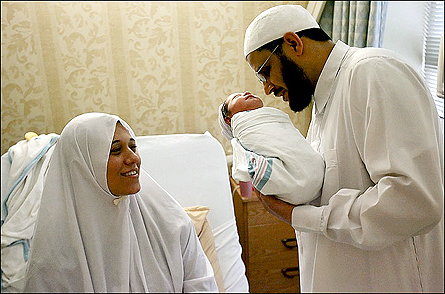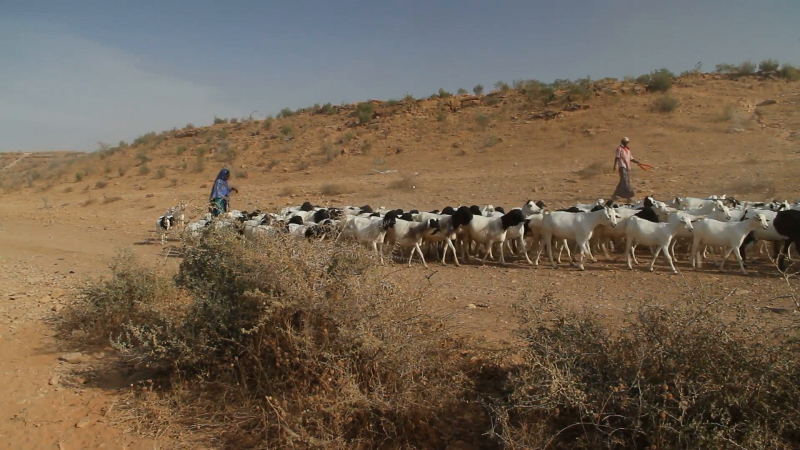The rule of Maher, AL-Mashaa’ir and Al-Sha’aair, etc

Question No. 1: In the Social System book (Arabic, page no. 121), certain conditions are stipulated for contracting of marriage which if not complied with, render the marriage null & void. While 0n page no. 122, there are conditions which if not complied with, corrupt the marriage contract, however, I have not found the Mahr (Dower) mentioned. If Mahr is neither a condition for contracting of marriage nor a condition for its authenticity, then what is the status of Mahr in the marriage contract?
Answer:
Concerning the Mahr, indeed, it is neither a condition for contracting of marriage nor a condition for its authenticity, which means that if a marriage contract complies with the contracting conditions as well as those conditions which render it authentic, then such a contract is correct even if Mahr is not mentioned. However, the Shari’ah laws are of two categories:
Laid down rules, which include cause and conditions…, and mandatory rules, which include the prohibited and the obligatory… Then there are the rules pertaining to Shara’i issues which are not derived from these two. Such rules may either be covered under the mandatory rules and thus may be obligatory (Fardh), recommended (Mandoob), permitted (Mubah), disliked (Makrooh) or prohibited (Haram); or these may be covered under the laid down rules and thus they may be either valid (sahih), invalid (Baatil), corrupt (Faasid), conditional (Shart), causative (Sabab) or prohibitive (Mani’an)… and so on.
By studying the issue of Mahr, it becomes clear that it indeed falls under the mandatory rules, thus Mahr is obligatory on the groom in favour of the bride. If it is mentioned, then it is as per what is mentioned, and if it is not mentioned, then Mahr al Mithl (prevailing) is binding.
As to why Mahr is obligatory, Bukhari has narrated on the authority of Sahl ibn Sa’ad that:
فَقَالَ رَجُلٌ مِنْ أَصْحَابِ رسول الله صلى الله عليه وسلم زَوِّجْنِيهَا يَا رَسُولَ اللَّهِ قَالَ أَعِنْدَكَ مِنْ شَيْءٍ قَالَ مَا عِنْدِي مِنْ شَيْءٍ قَالَ وَلَا خَاتَمٌ مِنْ حَدِيدٍ قَالَ وَلَا خَاتَمٌ مِنْ حَدِيدٍ وَلَكِنْ أَشُقُّ بُرْدَتِي هَذِهِ فَأُعْطِيهَا النِّصْفَ وَآخُذُ النِّصْفَ قَالَ لَا هَلْ مَعَكَ مِنْ الْقُرْآنِ شَيْءٌ قَالَ نَعَمْ قَالَ اذْهَبْ فَقَدْ زَوَّجْتُكَهَا بِمَا مَعَكَ مِنْ الْقُرْآنِ
“A man said (to the Prophet) “Please marry her to me.” The Prophet said (to him), “Give her a garment.” The man said, “I cannot afford it.” The Prophet said, “Give her anything, even if it were an iron ring.” The man apologized again. The Prophet then asked him, “What do you know by heart of the Qur’an?” He replied, “I know such-and-such portion of the Qur’an (by heart).” The Prophet said, “Then I marry her to you for that much of the Qur’an which you know by heart.”
An-Nasai has also reported similarly in Sunan al Kubra, and the narration is:
وَلَكِنْ هَذَا إِزَارِي قَالَ سَهْلٌ مَا لَهُ رِدَاءٌ فَلَهَا نِصْفُهُ فَقَالَ رَسُولُ اللَّهِ صَلَّى اللَّهُ عَلَيْهِ وَسَلَّمَ مَا تَصْنَعُ بِإِزَارِكَ إِنْ لَبِسْتَهُ لَمْ يَكُنْ عَلَيْهَا مِنْهُ شَيْءٌ وَإِنْ لَبِسَتْهُ لَمْ يَكُنْ عَلَيْكَ مِنْهُ شَيْءٌ
Thus the Prophet (saw) demanded from the man who intended that the Prophet (saw) marry him to one of the women to pay some Mahr, even if it were a ring made of iron, and when the man was unable to pay the same since he only possessed his trousers (Izaar), hw was given the choice of splitting his Izaar into two pieces and give one piece to his wife as Mahr. But the Izaar was not enough to cover the husband and the wife, asked him to teach her whatever portion of Quran he knew, so that the reward of teaching will be for the woman as her Mahr. All these are decisive evidences with regard to Mahr.
As for the Mahr being al Mithl (prevailing) if it is not mentioned, it is reported in Tirmidhi on the authority of Abdullah ibn Mas’oud in a Hadith which Saheeh Hasan:
أَنَّهُ سُئِلَ عَنْ رَجُلٍ تَزَوَّجَ امْرَأَةً وَلَمْ يَفْرِضْ لَهَا صَدَاقًا وَلَمْ يَدْخُلْ بِهَا حَتَّى مَاتَ فَقَالَ ابْنُ مَسْعُودٍ لَهَا مِثْلُ صَدَاقِ نِسَائِهَا لَا وَكْسَ وَلَا شَطَطَ وَعَلَيْهَا الْعِدَّةُ وَلَهَا الْمِيرَاثُ فَقَامَ مَعْقِلُ بْنُ سِنَانٍ الْأَشْجَعِيُّ فَقَالَ قَضَى رَسُولُ اللَّهِ صَلَّى اللَّهُ عَلَيْهِ وَسَلَّمَ فِي بِرْوَعَ بِنْتِ وَاشِقٍ امْرَأَةٍ مِنَّا مِثْلَ الَّذِي قَضَيْتَ فَفَرِحَ بِهَا ابْنُ مَسْعُودٍ
He was asked about a man who had married a woman but had neither stipulated her Mahr nor consummated his marriage until his death. Abdullah ibn Mas’oud said She should receive the full dower (as given to women of her class), observe the waiting period (‘Iddah), and have her share of inheritance. Thereupon Ma’qil ibn Sinan al-Ashja’ii said: I heard the Apostle of Allah (peace be upon him) giving the same decision regarding Birwa’ daughter of Washiq (as the decision you have given). Abu Dawood has reported a similar narration in his Sunan.
Thus the Prophet (saw) decreed that if a woman has married without her Mahr being stipulated, then her Mahr would be similar to women of her class.
Thus, even if Mahr is not a contracting condition, or a condition for its validity, it is obligatory on the husband for the wife under his charge and it should be paid. If he does not pay the Mahr, he is sinful for it and the Islamic State would forcefully apportion any right that he owes to the wife. And if he is able to afford it and yet does not pay, then the Islamic State will penalise him for harassing the wife and for her to eat from her right.
In Conclusion: The Mahr is not a condition but it is obligatory for the husband towards his wife, i.e. the Mahr falls under the mandatory rules and is not part of the laid down rules (أحكام الوضع).
Question No. 2: In the book al-Muqadimmah, part 1, page 79, the third point mentioned is:
“It includes the in-admissibility of such punishment which Allah (swt) has made as the punishment of the Day of Judgement, which is fire. i.e. it is not permitted to punish by burning in fire.”
Then on page 82, middle of the page, it is mentioned:
“The Law-giver has stipulated punishment for the culprits, and these are: murder, flogging, stoning, exile, cutting (severing), imprisonment, destruction of property, fines (penalties), libel and hot-pressing of any part of the body. It is not permitted to punishment anyone with anything other than these.”
The question is, how can the impermissibility of punishing by fire be reconciled with hot-pressing?
Answer:
1. Burning by fire means to place fire on the body of the person, like lighting fire and putting the person in it, or putting his hand or foot in it…or placing any sort of fire on his body like connecting his body with an electric cable which is connected to an electric source…or similar things which emit fire and which burns him. All these are not permitted because this is punishing by fire i.e. burning the body with a fire source which has the property to burn.
2. As for heating an iron rod or nail and holding this rod or nail to place it on the body of the person, by doing this, you are not placing a fire source on his body but you are placing something heated with fire and not connected to a fire source. This is called cauterisation and the Arabs have used it and continue to use this as medicine. They heat up a rod with fire and press it on the place which is paining etc.
3. You may have asked that hot-pressing is also cruel. Yes indeed it is, but it is a punishment for one who deserves it, and it is clearly legitimate. However this is not burning by fire. i.e. it is not like placing a fire source on the body.
In Conclusion: Punishing by fire, i.e. placing a fire source on the body is prohibited and not allowed under the Shar’iah texts.
Regarding hot-pressing, i.e. heating an iron rod in fire and placing it on the body but not placing the fire itself on the body is permitted under the Shar’iah texts.
Question No. 3: In the book Mafaheem (Concepts) on page 50 (Arabic), it is mentioned: “Many of the rituals of Hajj such as Tawaf around the Ka’abah, touching and kissing the black stone and running between Safa and Marwah were…”, and the word ‘rituals’ also appears in other places regarding these.
Is it not correct to say Shaa’ir instead of Mashaa’ir? If this is correct, will the word Mashaa’ir, be corrected as Shaa’ir wherever it appears?
Answer:
1. The word Sha’eerah (شعيرة) is the singular form of Sha’aair, similarly, the word Mash’ar (مشعر) is the singular form of Mashaa’ir); both these words come with the same meanings, however the general use of Mashaa’ir is for the signs of Hajj like Safa & Marwah and Mina, Muzdalifah & Jamaraat…
While Sha’aair (شعائر) is used for actions of Hajj and its rituals like Sa’ee, Tawaaf the Wuqoof at Mina and throwing of stones at Jamaraat…
2. But it correct that their meanings are interchangeable:
Allah (swt) says:
إِنَّ الصَّفَا وَالْمَرْوَةَ مِنْ شَعَائِرِ اللَّهِ…
“Verily, As-Safâ and Al-Marwah (two mountains in Makkah) are of the Symbols of Allâh.” [TMQ al-Baqarah 02: 158].
Here the word Sha’aair appears and refers to signs of Hajj and not of Sa’ee between Safa and Marwah.
And Allah (swt) says:
فَإِذَا أَفَضْتُمْ مِنْ عَرَفَاتٍ فَاذْكُرُوا اللَّهَ عِنْدَ الْمَشْعَرِ الْحَرَامِ…
“Then when you leave ‘Arafât, remember Allâh (by glorifying His Praises, i.e. prayers and invocations) at the Mash’ar-il-Harâm”. [TMQ al-Baqarah 02: 198].
And here the word Mash’ar refers to Muzdalifah, i.e. the signs of Hajj.
In the books of language:
In the Qamoos Al-Muheet, volume 1, page 434:
“and signs of Hajj and its rituals & signs. And Sha’eerah, Sha’aarah & Mash’ar: mostly.”
In the al-Muheet fillughah, vol: 1, page 43:
“(it refers to) signs, actions and marks of Hajj, and its singular is Sha’eeah.”
In the Lisan al Arab vol: 4, page 410:
“…(these are the) signs, rituals, marks, symbols and actions (of Hajj) and it is the plural of Sha’eerah…also Sha’eerah, Sha’aarah and Mash’ar like the Sha’aar.”
Al-Lahyani says: Sha’aair and rituals of Hajj and its singular is Sha’eerah…While Mashaa’ir are the signs which Allah (swt) recommended and ordered to be performed at, and from among these is what is called the Mash’ar al Haraam.
Al-Zujaj said about Sha’aair of Allah that they mean all the places of ‘ibadah (worship) which Allah (swt) has indicated i.e. made them a sign for us…and indeed Sha’aair implies all places where worship takes place…and therefore all places where Allah (swt) is worshipped are referred to as Sha’aair…
Al-Azhari says I do not know the Mashaa’ir of Hajj except from signs that are marks and flags, therefore Mashaa’ir of Hajj are its signs…”
3. From these, it becomes clear that Sha’aair and Mashaa’ir are interchangeable in meaning, however as we have mentioned in the beginning, the common usage of the word Mashaa’ir is for the signs of Hajj like Safa, Marwah, Mina, Muzdalifah, ‘Arafat and Jamaraat… while the word Sha’aair refers to the actions and rituals of Hajj like the Sa’ee, Tawaaf, the stationing (Wuqoof) at ‘Arafah and the Rami al Jamaraat…
4. As for the correction, if it becomes clear to us that such usage causes confusion and a rectification is called for, then we shall do so in sha Allah.
Question No. 4: In the book Ajhizat addawlat al Khilafah (Organisation of the Khilafah State) on page 136, line 4 from below it is mentioned: “When he was killed in Al-Yamamah, his heritage was brought to Umar ibn Al-Khattab”…
It is known that the battle of Yamamah took place during the era of Khaleefah Abi Bakr (r.a), whereas in the above cited reference, it is Umar ibn Al-Khattab, how do we reconcile this?
Answer:
1. Yes indeed in said page of the book Ajhizat al- Khilafah as follows:
“Al-Shai’I narrated in Al-Umm, which was corrected by Ibn Hajar from Abdullah ibn Wadee’ah, he said: “Salim, the servant of Abu Hudhayfah was a servant to a woman from us called Salma bint Ye’aar, she freed him unrestricted in Jahilliyah. When he was killed in Yamamah, his heritage was brought to Umar ibn Al-Khattab, so he called upon Wadee’ah ibn Khidham and said: This is the heritage of your servant, and you deserve it more. He said: “O Ameer ul-Mu’mineen, Allah made us no more in need of him. Our woman has freed him unrestricted; so we do not want to bring disgrace to ourselves, (or to bring loss upon us) from his matter. So umar put his heritage wealth in the bayt ul-mal.”
2. It is clear from the text that his heritage came to Umar during his era of Khilafah, though the martyrdom of Salim, the servant of Abi Hidhayfah took place in the battle of Yamamah which occurred during the era of Abi Bakr (r.a)
3. The interpretation of this is that the battle of Yamamah took place towards the last stages of the battles of the apostates, and there is difference of opinion regarding the time of it, Ibn Al-Atheer says about this in Al-Kamil:
“There are differences regarding the battles of Muslims against those apostates, so Ibn Ishaq said: The victory of Yamamah, Yemen and Bahrain and the sending of the troops to Al-Sham was in the year 12 A.H, while Abu Ma’shar, Yazid ibn ‘Ayyadh bin Ja’dabah and ‘Ubaidah bin Muhammad bin ‘Ammar bin Ibn Yassar said: All the victories against apostasy were achieved by Khalid and others during the 11th year A.H except the one against Rabe’ah bin Bajeer which was in the year 13 A.H.”
It seems that the correct view is that the troops were sent to Al-Sham in the year 13 A.H, thus it is possible that the battle of Yamamah took place towards the end of the year 12 A.H or the beginning of the year 13 A.H. When we know that the Khilafah of Umar (r.a) began at the end of Jumadah al-Thania of the year 13 A.H. thus it means that the heritage of Slaim, the servant of Abi Hudhayfah were collected after the death of Abi Bakr (r.a) when Umar was given the bai’ah of Khilafah, that is why the case was presented to Umar (r.a).
08 Jumada I 1431
2010/04/22





